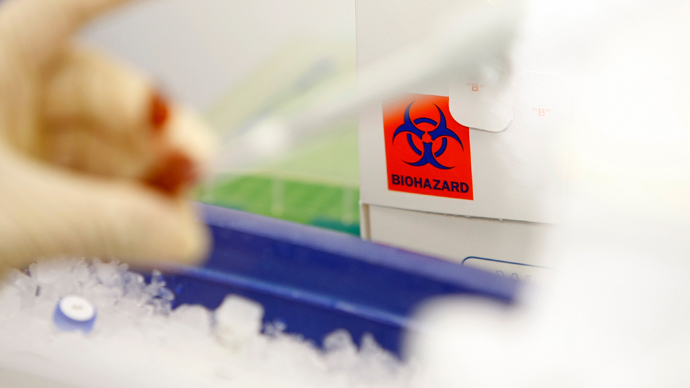Deadly bacteria leaked in Louisiana lab: Cause & spread unknown

Weeks of investigation by federal and state agencies have failed to uncover how a potential bioterror agent escaped from a Louisiana laboratory four months ago, or how far it has spread.
Since November, four rhesus macaque monkeys and a USDA investigator have been infected. Cultures of Burkholderia pseudomallei somehow got out of the secure facility at Tulane National Primate Research Center in Covington, about 50 miles north of New Orleans, reported USA Today. Officials insist there is no danger to the public.
A federal inspector visited this lab where bacteria was released and then fell ill -- but no one's sure why: http://t.co/OrVw5lhxjm
— USA TODAY (@USATODAY) March 2, 2015
The bacteria cause meliodosis, a disease with a 50%-fatality rate
even with treatment. Because it’s resistant to multiple
antibiotics, meliodosis has been researched as a potential
biological weapon, though the Tulane lab is said to have been
working on a vaccine.
“We're taking this extraordinarily seriously. It's very
disturbing to us,” Andrew Lackner, director of the Tulane
primate center, told USA Today. He also reiterated: “There
has never been a public health threat.”
Centers for Disease Control and the US Department of Agriculture,
which jointly manage biological research under the Federal Select
Agent Program, have suspended all further research at Tulane
pending the end of the investigation. The facility has never been
suspended before.
Federal investigators determined the four rhesus macaques and the
USDA investigator were infected at the facility’s veterinary
hospital on the South Campus. The investigator has since
recovered, but two of the monkeys have been euthanized.
However, there is still no explanation of how the deadly bacteria
got to the hospital from the supposedly secure laboratory on the
North Campus. USA Today describes the laboratory as a “biosafety
level 3” facility with a “wide range of high-tech safeguards,
physical barriers and procedures” that are supposed to ensure
dangerous pathogens remain contained.
Government officials haven’t divulged any details of the
investigation, but experts interviewed by USA Today say human
error is the most likely cause. CDC sources told the paper that
Tulane’s laboratories were last inspected in December 2013, and
no “significant problems” were reported at the time.
Burkholderia pseudomallei is found in Southeast Asia and
Australia. The strain being researched at Tulane (“Strain 1026b”)
was recovered from a Thai rice farmer infected in 1993, according
to a CDC source quoted by the paper. Melioidosis attacks the
lungs and has a wide range of symptoms – fever, headache, muscle
and joint pain, loss of appetite – so it’s often mistaken for
pneumonia or tuberculosis.












